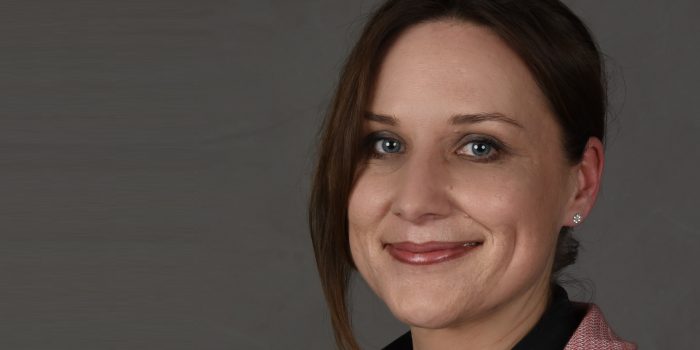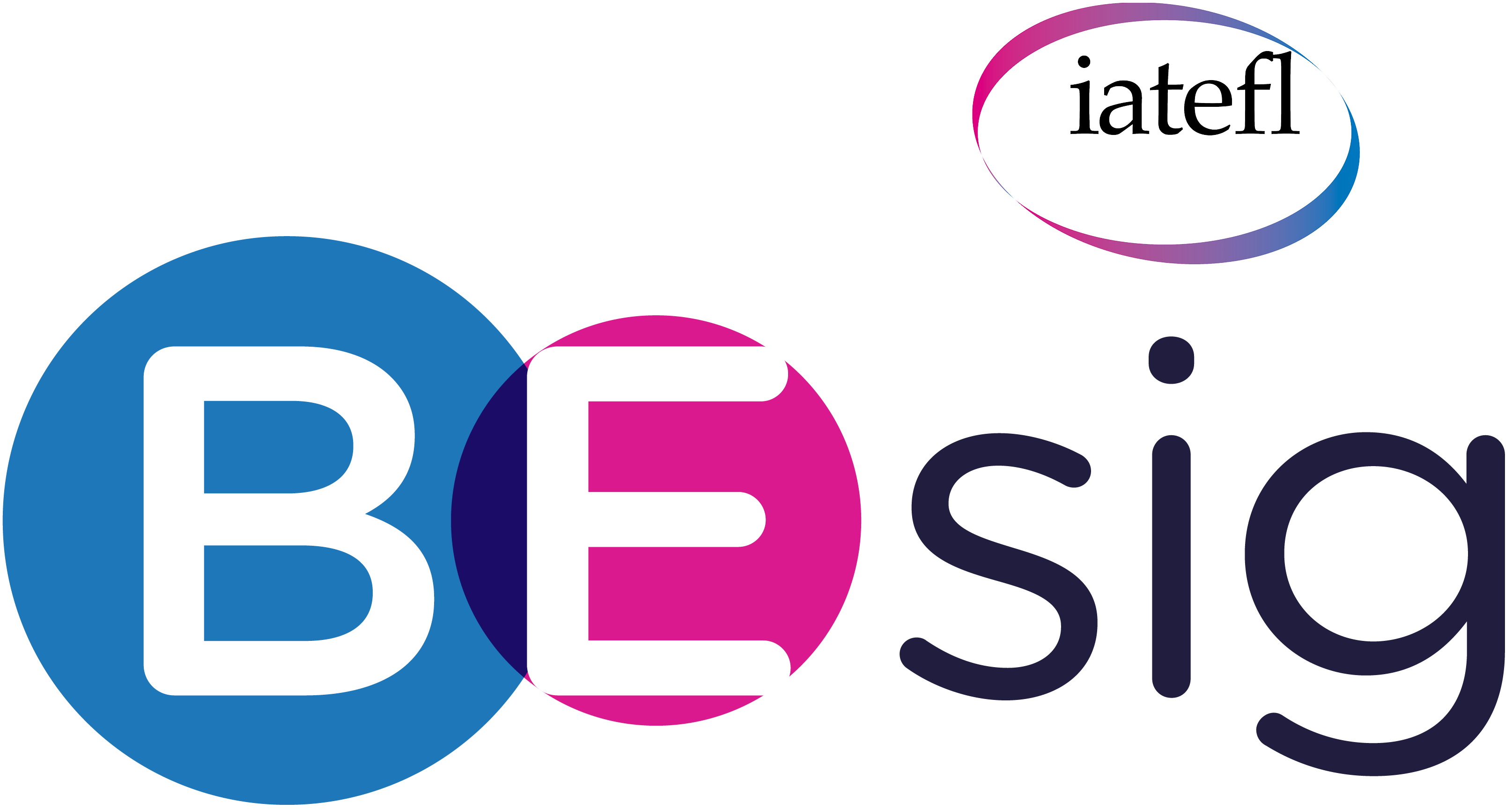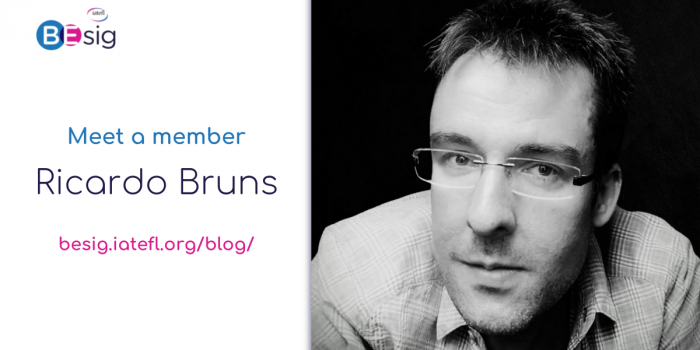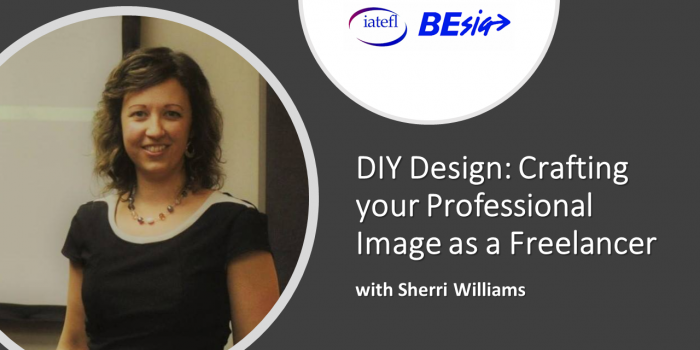
Isabella Keilani
This week sees another story as we meet a BESIG member with an intriguing professional background. Read on to hear about how Isabella Keilani went from the world of translating and interpreting to that of teaching and blogging. Also, find out how winning the IATEFL BESIG Roving Reporter Travel Grant inspired Isabella to dig deeper into everything BESIG has to offer.
Isabella Keilani did a master‘s in translation studies and started out as an interpreter before
discovering her passion for teaching. She holds a CELTA and CertIBET accreditation and teaches General, Business and Medical English in Graz, Austria. She also writes a blog: “We Live English”.
What made you apply for the IATEFL Roving Reporter Travel Grant and what did you get out of it?
I am a real ’conference junkie’. Going to teaching conferences helps me get inspiration for my work and keep my passion for teaching alive. What I usually do at conferences is take notes like crazy. Even though nowadays a lot of the events are recorded and most speakers are generous enough to share their slides, jotting down my own thoughts, going over them again back home and re-writing them is the best way for me to reflect on what I have heard and make it more memorable. When I read about the IATEFL BESIG’s Roving Reporter Travel Grant, I thought ‘Wow, this is what I would do anyway’. I sent in a summary of Virginia Lopez Grisolia’s plenary at last year’s IATEFL conference and on my birthday I got an email saying that my application was accepted.
When did you attend your fist BESIG event? What were your first impressions?
Last year’s conference in IASI was actually my first BESIG event. I am really glad that winning the IATEFL BESIG travel grant brought me to Romania, a country that otherwise would not have been on my immediate radar. What surprised me most about the event was the welcoming atmosphere. It was easy to get to talk to both participants and presenters. Everybody was helpful and supportive and even though I was a first-timer and there were a lot of ‘big names’ and people that I previously only had known through their publications or through webinars, I had the feeling of immediately being ‘accepted into the family’.
You write a blog; what inspired you to start blogging and what do you focus on?
What inspired me to start writing were conversations I’d had with my learners. A lot of them seemed to think that making progress in English is somewhat a Sisyphean task and can only be achieved by sitting at their desks and learning from books or notes. So quite often they start out with a lot of motivation, but are soon overwhelmed – or simply bored – by a workload they cannot manage over a longer period of time.
What I focus on in my blog is showing learners that by taking small steps that are not time consuming and which can be easily integrated into their daily routines, like looking up the lyrics of an English song they like and singing it under the shower, they can gradually improve their English.
How has studying foreign languages helped/informed your teaching practice?
Even as a child, learning languages was fascinating and fun for me. Whenever I was on holiday with my family I tried to make friends with kids from other countries and pick up as much of their language as I could. During my translation studies at university, I had to learn how to quickly acquire technical vocabulary and to understand text type characteristics when preparing for specific translation assignments. I think that learning foreign languages has given me the passion for learning that I hope to pass on to my learners and the patience and understanding it takes to support them in their learning process. Through my training and professional experience as an interpreter, I could acquire tools and strategies to efficiently prepare for assignments in specific fields, which I can put to good use when teaching BE and ESP.
One aspect you specialize in is medical English. How do business and medical English teaching overlap?
Both business English and medical English teaching are aimed at helping learners prepare to effectively communicate in professional settings. In business English, it is typically about situations like meetings and negotiations and good business relationships with co-workers, business partners and clients. In medical English a focus is on relationships between health professionals and their patients. It is a lot about empathy, creating trust and being able to communicate clearly and precisely. In both cases, the focus is on effective communication across languages and cultures, so similar teaching strategies can be applied. In both business English and medical English contexts, a one-size fits all approach is not really helpful because each setting is so different. Both fields are challenging, both fields are interesting to work in.
What are the settings you primarily teach in and what type of setting do you prefer?
I teach mostly evening classes, weekend workshops and seminars at conferences. Teaching evening classes is more personal. You get to know your learners well and can see them develop and grow. Teaching weekend workshops is exciting because you never know exactly who is going to be in your class. Often participants contribute a lot through their individual experience or their specific point of view. What I enjoy most, however, is teaching at conferences. I like the event character and the special conference atmosphere. A lot of participants see conferences as an opportunity to get ahead and even take time off work to take part. Others are given the day off by their employers as an incentive. All this has generally a positive effect on learning and learner engagement, which in turn makes also teaching more pleasant.
What are you most looking forward to about the BESIG conference in Berlin, Adlershof (Oct 11-13)?
Getting out of my daily work routine, immersing into the conference spirit, meeting up with people I got to know at last year’s conference and above all presenting for the first time at a teaching conference together with my dear colleague, Marjorie Rosenberg. I’m really looking forward to this year’s BESIG conference in Berlin.
Thanks a lot, Isabella, for a superb interview! If you would like to be interviewed and featured on the BESIG blog, send an email to Mandy at [email protected].
Questions and editing by Mandy Welfare
27th July 2019
MEET A MEMBER is available to IATEFL BESIG members and non-members alike but only features our current members. Another reason to join us and “BE with BESIG.”



